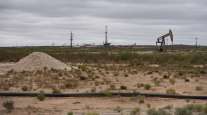The Return of the Oil Speculators
There are worrisome signs that commodities speculators are returning to the nation’s fuel markets, pushing prices higher than the normal forces of supply and demand would warrant.
Our primary fuel story this week (click here for page 1 story) quotes an analyst warning that concerns about the future direction of the dollar have speculators rushing back into fuel markets, because a falling dollar leads to rising crude oil prices, opening up the prospect of bigger profits.
You no doubt recall what happened to fuel prices during the last commodities bubble, when speculators ran up the price of diesel close to $5 in some markets, even as demand was diving thanks to the recession.
Fuel prices have been relatively calm for some time, as lower demand and growing supply — and the absence of much speculation — has led to a lower and steady market. But that honeymoon appears to be ending.
After rallying earlier this year, the dollar has been slipping, driven in part by burgeoning federal deficits. And that has attracted the speculators back.
That rush of investors had once again replaced the usual market rule of supply and demand as the primary price setting influence.
There has been so much new speculation that the oil analyst warned he no longer wastes much time looking at the Department of Energy’s weekly supply and demand reports, because prices are being driven more by the speculators. Oil prices hit their highest level in two years last week.
And the trading in crude oil futures has “artificially dragged along” prices for diesel and gasoline, according to our analyst.
Last week, the diesel price average rose 3.5 cents to $3.197 a gallon, while gasoline spiked 10.2 cents to $2.958.
The average price of a gallon of diesel is already 42.5 cents a gallon higher than it was in the corresponding week of 2009, and the economic recovery is still in its early stages. That being the case, what can we expect to pay for diesel six months or a year down the road when, most analysts predict, business will be substantially better than today?
The re-emergence of widespread speculating in crude oil should fuel a renewal of efforts on Capitol Hill to curb the influence of commodities traders.
Fuel is too important an element of our economic recovery to be subject to the whims of speculators who thrive on price volatility, with no concern about the effect of their activities on the health of the nation’s economy.




